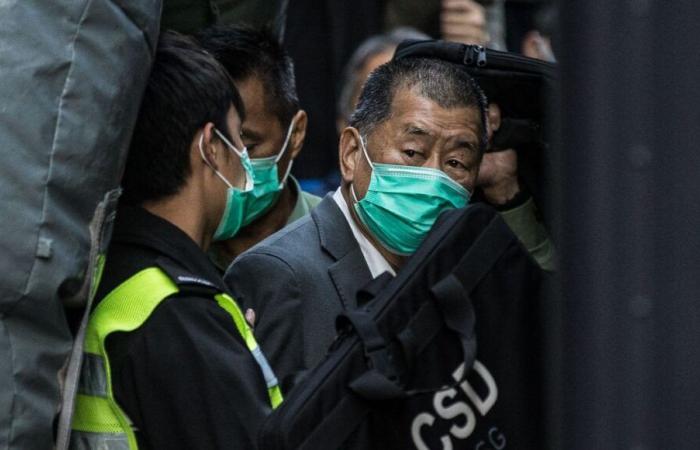The case was completed in six minutes. 45 activists crowded into the dock. Facing them, the president of the court imposes the sentences without even taking the time to read the reasons: 120 months, 84 months, 56 months… All are sentenced to prison.
They are lawyers, academics, students… they were arrested during a massive raid three years ago, for having violated the draconian national security law imposed by China in 2020. Their crime? They had organized a primary within the opposition to increase their chances of doing well in the legislative elections. Nothing terrible at first glance, but justice saw it as a “conspiracy” in order to cause a “constitutional crisis”.
Some of the convicts are figures in the freedom movement in Hong Kong, such as ex-law professor Benny Tai or Joshua Wong, a leader of the Umbrella movement ten years ago.
And another famous dissident, businessman Jimmy Lai, 76, was in court this Wednesday. He is one of Beijing's pet peeves, having been detained for four years. Also accused of endangering national security.
In particular, he created the very popular daily Apple Daily in Hong Kong, which is now closed. Jimmy Lai is being prosecuted for articles supporting the major pro-democracy protests of 2019.
This morning, in court, he defended his newspaper which embodied, he said, “the values of Hong Kong, the rule of law, freedom”. It was the first time he spoke during a trial that had been postponed several times.
He appeared confident, according to the journalists who attended the hearing, inflexible in the face of the justice system of Hong Kong, the armed wing of Beijing. Jimmy Lai has denied any collusion with foreign powers.
International solidarity
These hearings deal a new blow to freedoms in Hong Kong, freedoms of which there is little left. Not much of the “one country, two systems” principle, which President Deng Xiaoping promised in 1997 when the territory was handed over to China, after 56 years of British presence.
Democracy has withered over crises: the first demonstrations in the 2000s in the face of the growing control of Chinese power; the Umbrella Movement in 2014; then the massive mobilization of 2019 against a law that favors extraditions to the continent.
The rest has just been told through these hearings: Beijing's national security law aims to purge the opposition in Hong Kong.
International solidarity resists. London believes that Hong Kong “criminalizes political opposition”. British leader Keir Starmer even raised the subject publicly at the G20 in Rio. The European Union denounces “an unprecedented blow” inclined to freedoms.
The NGOs are outraged. For Amnesty, these two trials embody “the collapse of human rights in the territory”. But in Hong Kong, the democracy camp lost much more than a battle this week. He understood that Beijing would give dissidents no chance, and would stifle any attempt to challenge Chinese power.






